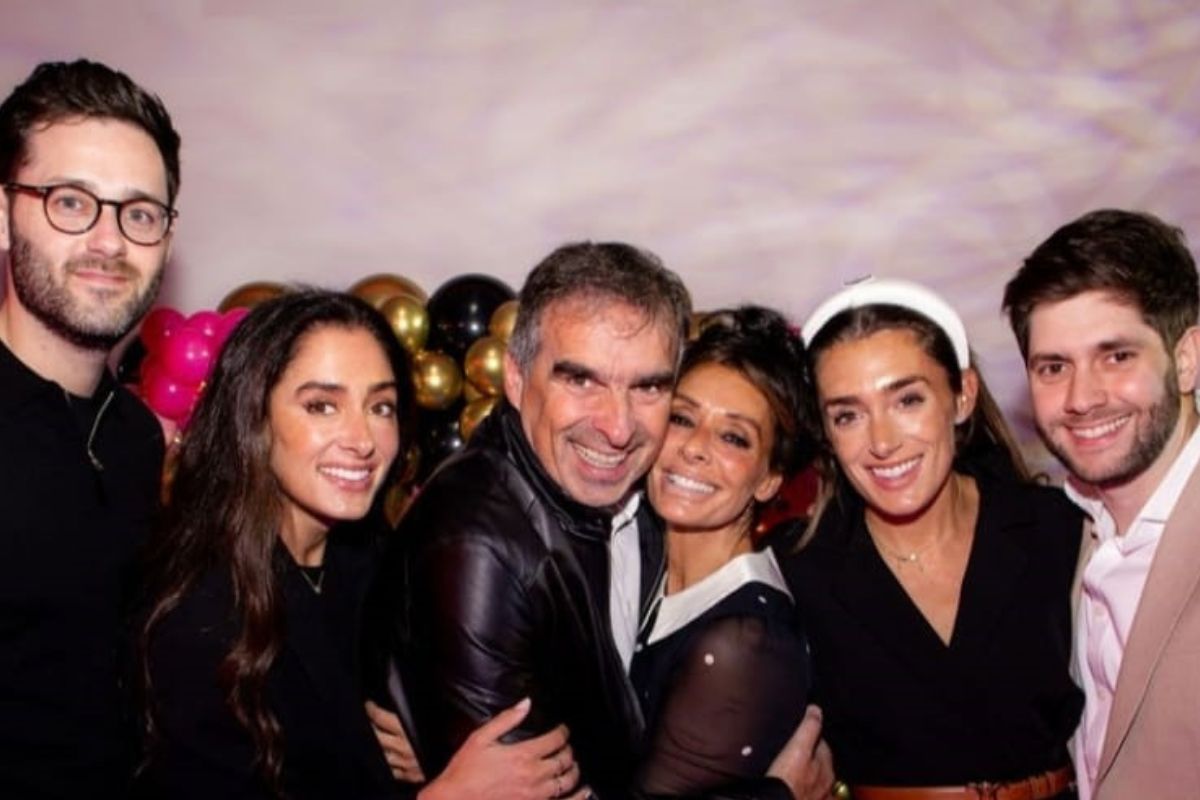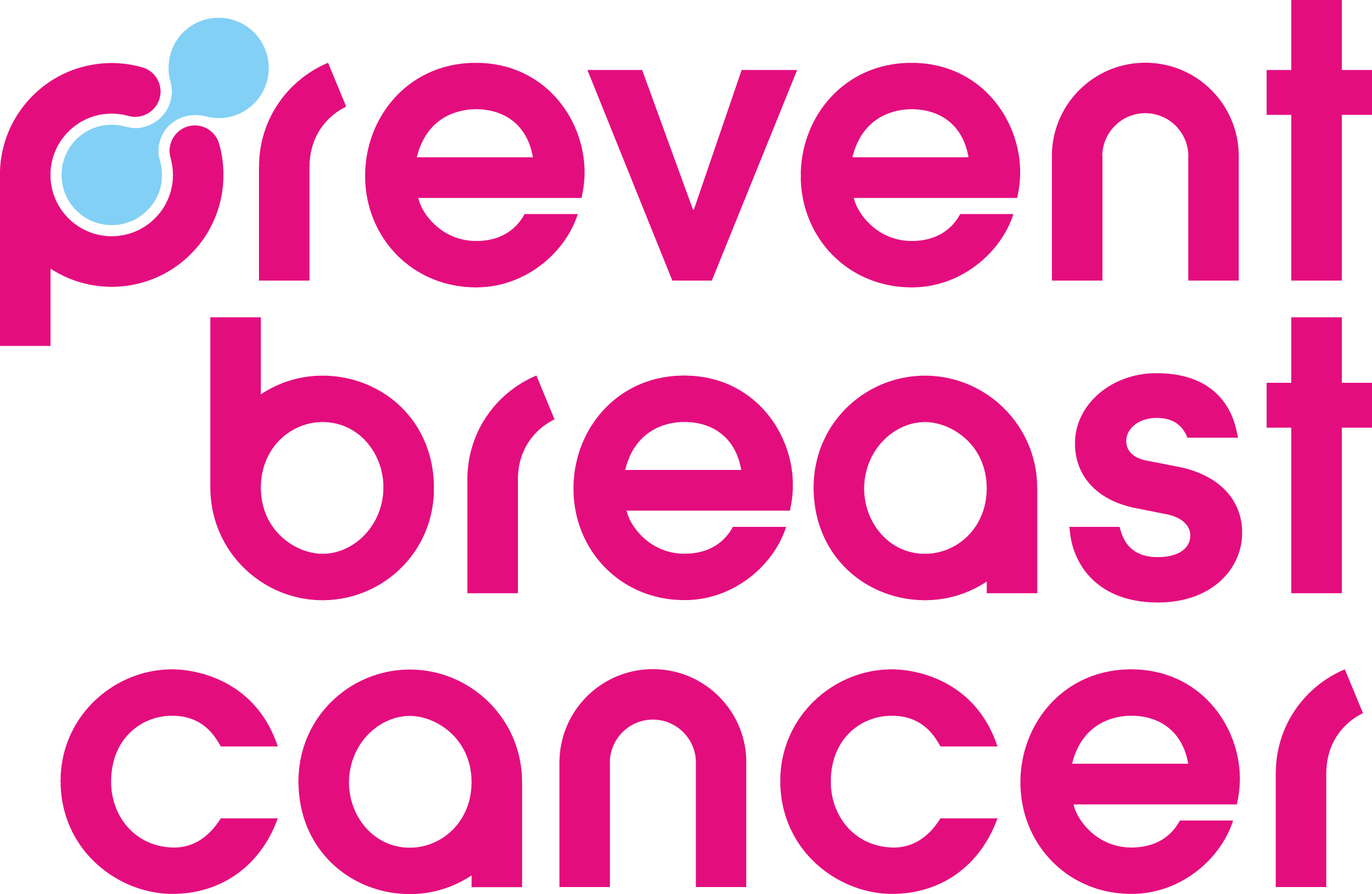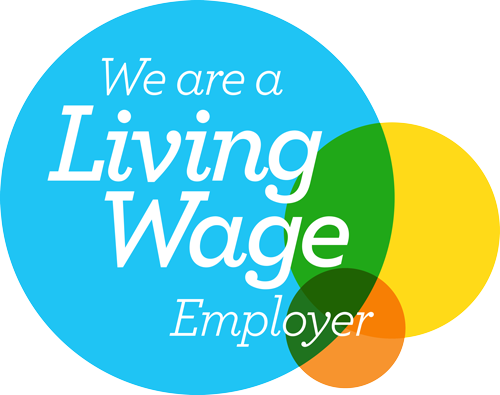In 1998, Doctor Vicky Lee underwent genetic testing, then somewhat in its infancy, to determine whether she had inherited an altered (mutated) BRCA 1 gene.
After devastatingly losing her mum to ovarian cancer, genetic testing determined her mum was a carrier, and in turn, it proved Vicky was, too.
Having an altered BRCA 1 gene meant that Vicky’s chance of developing breast and ovarian cancer was greatly increased. She decided that knowledge was power and opted for both a hysterectomy and double mastectomy to greatly reduce her chances of both cancers.
Vicky was one of the first ever family history patients of Professor Gareth Evans, the world-renowned breast cancer geneticist, who developed a clinical service for cancer genetics in the Northwest of England. This nationally regarded Family History Clinic is now housed at The Nightingale Centre, Wythenshawe Hospital, which is where you will also find Prevent Breast Cancer.
By sharing her genetic testing story, Vicky wants to offer hope and reassurance to those who may be going through something similar.
Could you share with us a summary of your experience?
My mother died of ovarian cancer at the age of 47, in April 1991, just five months after my first child, Hannah, was born, and just one week after my 24th birthday. This was a completely devastating time for me and my family – I’d lost my very best friend, and my grandparents had lost their only child. We didn’t know then that genetics had any part to play – we thought that it was just more random tragedy to fall upon our family [my father passed away from oesophageal cancer at the age of 35, when I was just 7 years old].
A few years after mum’s death, research around hereditary links for certain types of cancers were beginning to evolve, and I became a patient in the Family History Clinic, which was then housed at St Mary’s Hospital in Manchester. It transpired that my mum was a BRCA1 gene carrier – meaning that her risk of developing breast and/or ovarian cancer was massively increased. When I was 31 years old, I found out that I, too, carried the BRCA1 mutated gene, but through preventative surgery, and great support, was able to do something about it. I was lucky.
As one of Gareth Evans’ first ever family history patients, please can you tell us about your family history and how you came to undergo genetic testing and what the process entailed? How did the process and results make you feel?
A few years after my mum passed away from ovarian cancer, I’d read about the beginnings of familial links with certain cancer types. I went to see my GP and he referred me to The Family History Clinic at St Mary’s Hospital. I met with Professor Gareth Evans, and he drew my family tree, including any information we had on past family members who had suffered any form of cancer. I don’t remember exactly the timeframe in which everything happened, as we’re talking about almost 30 years ago, but I do remember finding out that my mum had the mutated BRCA1 gene, and that there was a 50:50 chance that I, too, had inherited the mutated gene. By this time, I’d had my second daughter, Katie. I remember receiving a letter outlining the above, explaining that I could find out whether I was a carrier by going through genetic testing, which would involve having blood taken and being sent for analysis, and offering me abdominal and mammography screening if I didn’t yet feel ready to go down the genetic route.
I opted for the latter. I was only in my late 20s by this stage. I remember one particular ultrasound scan taking longer than usual and was told that there was a cyst on one of my ovaries. I was devastated. I thought that this was sure to be the worst-case scenario and that I would be mimicking my mum’s fate. A laparoscopy determined that the cyst had actually disappeared, and was likely just linked to ovulation, but this episode was the catalyst for me to go through with genetic testing. I always felt that I would only get tested when I knew I felt OK about going through preventative surgery if my outcome was positive.
So, in October 1998 I went through genetic testing – a simple blood test with potentially enormous gravity. I remember going with my husband to The Christie for a meeting with Professor Evans where he told us my fate. I felt numb. It definitely took a little while to process. But in January 1999, at just 31 years of age, I had a full hysterectomy (bilateral oophorectomy). I felt lucky that I was given the chance to prevent a cancer that took the life of my mum, and one of her aunts before her. I felt lucky that I was already married, and had already had my 2 daughters, who were then 5 and 8 at the time, and hadn’t planned on having any more children.
In September 2002 I had a preventative double mastectomy, in order to address the breast cancer risk side of things. I felt relieved afterwards that I had done all that I could to decrease the risk of contracting the cancers that, rightfully as a result of my inherited genetic make-up, would put me in a high-risk category. And all this is fully attributable to being a patient at a Family History Clinic, under a world-renowned geneticist.
What effect did your experience have on your relationships with your family?
Although I was lucky enough not to contract either ovarian or breast cancer, the surgeries that I endured could have had a negative impact on my husband and daughters, but they didn’t. My husband, Darryl, has been 100% supportive through every step of my journey, and there wasn’t one decision that we didn’t agree on. I felt secure enough in our relationship that he would not be phased by seeing me without ‘real’ breasts, and I was right. My girls were exactly the same. I hid nothing from them. And they saw me take everything in my stride. My situation was normalised for them. There’s nothing that I would do differently.
Do you have any advice or tips for anyone who has been through a similar experience?
I didn’t go through genetic testing until I felt ready to go through preventative surgery if I were to test positive. This is a personal choice, but I know that I would have suffered worry and anxiety knowing I was positive without doing something about it.
Can you tell us about your thoughts regarding Professor Evans’ latest breast cancer research?
As a woman from an Ashkenazi Jewish background, I was delighted to learn about a new study* co-led by Professor Evans. The researchers have been able to develop and improve the accuracy of breast cancer genetic testing for Ashkenazi Jewish women by looking for tiny genetic variations (gene fragments) called Single Nucleotide Polymorphisms (SNPs). The ability to accurately test for gene fragments that might be the cause of family cancers is so important for allowing women, like myself, to make informed choices about their future health.
Preventative surgeries are significant procedures that no woman would undergo lightly. Accurate testing gives women the confidence to make these decisions based on precise insight and, conversely, allows other women to know with confidence that their risk score is low giving them freedom to go and live their lives.
I recently joined Professor Evans for a live BBC Radio Manchester interview to discuss why I chose preventative surgery, and it was really interesting to hear first hand about his latest research.
Why is Prevent Breast Cancer your chosen charity, and why did we stand out to you?
Prevent Breast Cancer plays a crucially important role in funding vital, ground-breaking medical research, with the ultimate aim of protecting future generations from breast cancer – to ensure that we are here for our children, and they for theirs. I am lucky that I found out about my genetic make-up and was given the choice to do something about it. I am lucky that I am still here for my daughters and now have a granddaughter of my own, with another on the way. It is my wish, and dream, that they, too, are given choices that will ultimately lead to them living long and healthy lives, and the work that Prevent Breast Cancer carries out is critical in this regard.
What does a breast cancer free future mean to you?
This would be the ultimate goal – to stop present and future generations suffering, dying, and losing loved ones to a disease that it is our objective to eradicate.
Thank you to Vicky for sharing her experience.
* We’re extremely pleased to say Prevent Breast Cancer funded the OncoArray machines in this important study. These machines enable research into cancer risk and predisposition, providing insight into the relationship between gene variants and cancer predisposition in five of the most prevalent cancers – including breast cancer.
Find out more about genes and family history.
About Prevent Breast Cancer
Prevent Breast Cancer is the only UK charity entirely dedicated to the prediction and prevention of breast cancer – we’re committed to freeing the world from the disease altogether. Unlike many cancer charities, we’re focused on preventing, rather than curing. Promoting early diagnosis, screening and lifestyle changes, we believe we can stop the problem before it starts. And being situated at the only breast cancer prevention centre in the UK, we’re right at the front-line in the fight against the disease. Join us today and help us create a future free from breast cancer. If you have any questions or concerns, email us today.




